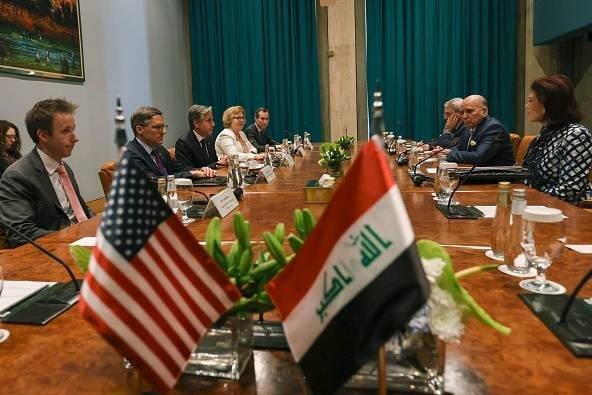NOVANEWS

Iran’s letter inviting Egypt to ‘adopt the Iranian model and join Tehran to build a new Islamic culture’ is indicative of Tehran’s desire to redraw the new Middle East and the pressure it feels over the developments in Syria.
ed note–as we have said time and again on this website and accompanying program, the real ‘nuclear weapons program’ that Israel and the west fear more than anything else is Iran acting as a stabilizing factor in the region and drawing other countries into her orbit. We should therefore look for something to take place between the two countries–instigated by Israel and her lackeys, the US, UK, etc– in order to scuttle any friendship between them.
Haaretz
Iran reached out to Egypt on Saturday, just as Egyptian sources leaked to a Saudi newspaper what Egyptian intelligence officials had told Morsi: that resuming diplomatic ties with Iran would do more harm than good.
“I suggest you adopt the Iranian model and join Tehran to build a new Islamic culture,” read a letter sent by 17 advisers of Iranian leader Ali Khamenei to Egyptian President Mohammed Morsi. The letter, signed by senior adviser Ali Akbar Veyalati, among others, was reported Saturday in the Saudi newspaper Asharq Al Awsat, which also received the Egyptian intelligence leak.
The letter will not decide the issue of rebuilding relations between Egypt and Iran, which is not on the agenda at the moment. The slap in the face that the heads of Al-Azhar University gave Ahmadinejad during his Cairo visit when they demanded that he stop spreading Shiite doctrine in Egypt, together with the shoe that was thrown at him, were only a dramatic public expression of the deeply-felt view in Egypt that Iran is a threat.
Iran’s letter is more indicative of its diplomatic effort to set itself up as a contender in the battle to redraw the post-revolutionary Middle East and the pressure it feels over the developments in Syria.
The letter was intended as more than a message to Egypt. Its purpose was also to hint to Saudi Arabia and the Gulf states that Iran would make every effort to weaken their power and influence over the region’s future, and to tell them that after getting Iraq, Syria and Lebanon to come under Iran’s influence, the traditional Arab axis would be next. Iran is already preparing itself for 2014, when American forces will be leaving Afghanistan, turning that stricken country into the focus of a struggle for political influence between Pakistan, Saudi Arabia and Iran.
Iran is concerned by two foci of conflict. One is Iraq, where Sunni districts and tribes are rising up in protest, threatening to overthrow the regime of Nouri al-Maliki, Iran’s ally. The other is in Syria and Lebanon. Officials of the Iraqi opposition report that Iran gave al-Maliki $6 billion to put down the Sunni rebellion and that the commander of Iran’s Quds Force, General Qasem Soleimani, promised to send 50,000 recruits from the Basij volunteer militia to help suppress the protests.
While these reports can be viewed with skepticism, their publication provides evidence of the rising tension between the Sunnis and the Kurds on the one hand and the Iraqi government and its patron, Iran, on the other.
Iranian officials describe the crisis in Syria as a strategic threat that could crush Iran’s most important access route to the Arab Middle East. From Iran’s perspective, Syria and Lebanon are a single sphere of influence over which it is fighting with Saudi Arabia and Qatar, which are funding and evidently arming the opposition forces. Iran, which continues to support Assad – spending enormous sums to prop up his regime (recently it opened a credit line of $1 billion for the regime’s use) – is an active participant in the struggle on the ground.
Revolutionary Guard troops and Hezbollah fighters are operating in Syrian territory on two fronts. They provide consulting and training for the high command, and they also fight against radical Sunni militias that have managed to take over strategic locations and bases there.
The battle has also trickled into Lebanon, whose northern portion is crowded with Sunni citizens who support the Syrian opposition. Over the past few days, it was reported that the radical Al-Nusra Front, an affiliate of Al-Qaida, had reached southern Lebanon, where they were trying to establish bases in Palestinian refugee camps. If these reports are correct, Hezbollah could find itself in a tough battle in Lebanon against armed Sunni troops who would split the area of fighting between Syria and Lebanon. This comes at a time when Lebanon is preparing for general elections planned for June, in which Iran and Hezbollah need to ensure a majority in the parliament that will maintain their political control over the country.
These pressure points obligate Iran to examine its options and try to set up new centers of influence in case Assad falls and Iraq enters a violent civil conflict. That is why Iran attaches such importance to its relations with Egypt and why it is trying to establish a base of influence for itself in Yemen. It is doubtful whether its efforts will bear fruit, particularly against the barricade Saudi Arabia has put up. At the same time, it seems that Iran’s diplomacy and military intervention are actually strengthening the Arab alliance that opposes it.
Iran’s vulnerable array of interests, together with the Arab world’s solid stance against Iran, could benefit Israel if the latter were willing to resume the peace process and heal the crisis with Turkey. But as Israel’s strategic vision shrinks to the point of seeing only more housing units in the settlements, this opportunity, too, will pass it by.



